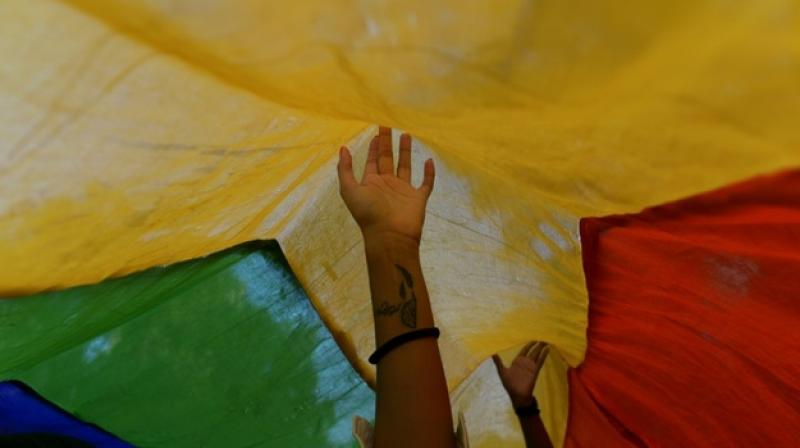Meet the petitioners who challenged criminalisation of homosexuality
In a landmark verdict, the Supreme Court on Thursday decriminalised Section 377 of the Indian Penal Code.

Mumbai: In a landmark verdict, the Supreme Court on Thursday decriminalised Section 377 of the Indian Penal Code (IPC).
The verdict on Section 377 comes on five petitions moved by dancer Navtej Singh Johar, journalist Sunil Mehra, chef Ritu Dalmia, hotelier Aman Nath and business executive Ayesha Kapur.
Here is a look at the petitioners in the Section 377 case in SC:
Navtej Singh Johar: Renowned classical dancer and winner of the Sangeet Natak Akademi Award, Navtej Singh Johar along with his partner for 25 years, petitioned the Supreme Court and said that Section 377 violated the right to life and personal liberty guaranteed by the Constitution.
In 2016, Johar’s petition was forwarded to a Constitution Bench for hearing after he along with a group of LGBTQI activists filed petitions against Section 377 in 2014.
Sunil Mehra: It was in 1994 that journalist and the former editor of the Indian edition of Maxim magazine Sunil Mehra met Bharatnatyam dancer Navtej Singh Johar for a profile he was working on. The two moved in together within six months. Along with Navtej Singh Johar, Mehra has co-founded Studio Abhyas.
Read: Gay sex not a crime in India: Supreme Court decriminalises Section 377
Ritu Dalmia: Celebrity chef and owner of the niche restaurant chain Diva, Dalmia identifies as lesbian.
Born in Kolkata to a traditional Marwari business family, Dalmia first broke the news about her preference to her mother over a dinner.
She filed the petition after the Supreme Court reserved the Delhi High Court's judgement on Section 377, reinstating the law that criminalised adult consensual same-sex relations.
Aman Nath: Co-founder and co-owner of the Neemrana chain of hotels, writer and architectural restorer Aman Nath was in a committed relationship with his partner Francis Wacziarg. Aman and Francis' relationship lasted for 23 years till the latter's death in 2014. He has adopted a daughter and has named her Aadya Nath. Born and raised in New Delhi, Nath did his post-graduation in medieval Indian history from Delhi University.
Also Read: 1861-2018: Section 377, a sorry British-era law that dies to give hope
Ayesha Kapur: Businesswoman Ayesha Kapur currently works in the food and beverages industry.
According to the New York Times, Ayesha said she would not have thought this possible in the ’80s Delhi she grew up in. ‘Lesbian’ was a bad word to be used, she said.

